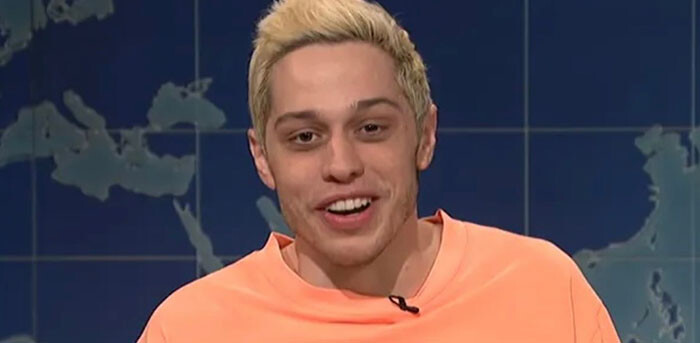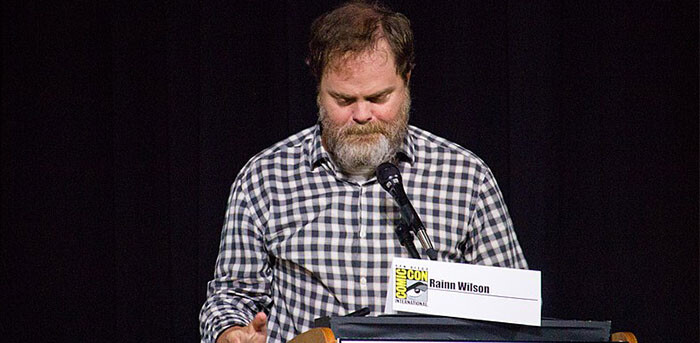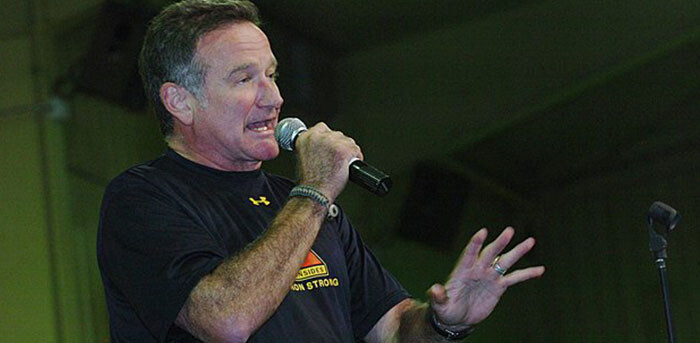15 Comedians Speak Out On Mental Health And Life

Discussing mental health in the comedy community is thankfully becoming more prevalent. I was recently diagnosed with bi-polar disorder and prescribed medications that have drastically improved my life.
Wow… I haven’t even told my parents yet, but there’s something safe about telling strangers. Keyboard confessions.
There are a lot of cloudy facts surrounding mental health, but there’s no shortage of tips that can drastically help your mental health in a big way.
All the best on your journeys.
Pete Davidson

NBC - Broadway Video
And now he’s dating his ex.
In SNL’s Weekend Update segment, Pete said, “Kanye, I know you're like, 'Yo, this is the real me, I'm off the meds.' Take 'em! There's no shame in the medicine game, I'm on 'em! It's great! Take them, there's nothing wrong with taking them.”
If I ever got on a plane, and the pilot said, ‘I just want all you to know, this is the real me flying tonight! I’d jump out. Being mentally ill is not an excuse to act like a jackass.
Sarah Silverman

Gage Skidmore/Wikimedia Commons
Be careful who you’re taking advice (and drugs) from.
In the mental health documentary, Laughing Matters, Silverman said “One hundred percent of comedians become comedians because somewhere in their childhood they needed to be funny in order to survive.”
Silverman reveals that she was put on Xanax to help with anxiety and depression when she was 13 years old. “They just upped the dose … until I was taking four Xanax four times a day,” she shares. The psychiatrist who originally put me on it hung himself,” she adds. “I mean, I can’t just skate by that — it’s crazy.”
Jim Gaffigan
"Therapy helped a lot. Comedians, like most humans, have demons. My wife (and writing partner) Jeannie Gaffigan has been invaluable in keeping me grounded.”
Rainn Wilson

Through the mask of a character.
Wilson admitted that he expresses his pain through the characters he portrays on screen.
“Here I am, this really ungainly, insecure kid, feeling generally unloved and unloveable through most of my life. You see some of that Rainn Wilson trauma in the character of Dwight.”
Neil Brennan
Check out 3 Mics. It’s amazing.
In an interview with Trevor Noah, Neil openly discusses his struggles with depression. Noah asks how he can talk about depression on a comedy show, and he responds, “Just be honest about it.”
He mentions how he suffered with depression for the longest time and that it has affected his career.
Michael Ian Black

David Shankbone/Wikimedia Commons
Stella!!! (sorry).
“What I was looking for was a magic pill. I was looking for some sort of antidepressant that would alleviate the symptoms and allow me to go about my life in such a way that did not require therapy. I think, ultimately, I was just afraid. I was afraid to dredge up whatever there was to dredge up.”
Michael did get pills. But they weren’t a quick-fix cure.
Gary Gulman

Diving in head first with that title. Nice.
In his HBO special, The Great Depresh, Gary Gulman opened up about his own struggles with anxiety, depression and hospitalization.
Gulman put together a list that helped him regain his health and continue to thrive. He said, “I don’t know whether these ideas will help you, I can tell you they have saved my life.”
Jenny Saldana
“It’s really hard to be ‘ON’ all the time. We struggle with our onstage persona and our personal lives. Combine these issues with access to drugs in the late-night scene, and addiction lurks around the corner.
Aparna Nancherla

Oh, you get a little seasonal depression in January? Talk to me in July!
“There are certain types of weather that are better for depressives. I love it when it rains. It reminds me of why I got into the whole sad game, you know? . . . Whenever it’s pouring outside, as a sad person you can turn to any random optimist on the street and just be like ‘Hey! You’re in my world now.’”
Maria Bamford

InSapphoWeTrust/Wikimedia Commons
Yes, hello. I think I need to be in here.
Mental illness has been a central theme for Maria Bamford. Diagnosed with obsessive-compulsive disorder, bipolar disorder and with a long history of suicidal thoughts, Bamford has fearlessly talked about all aspects of her struggle.
Here she talks about checking herself into a psych ward.
Wayne Brady

Brady says that most comedians have been taught to keep quiet about their struggles, no matter how much pain they may be experiencing.
He said, “If I complain, strike me down!”
Ian Fidance
Ian credits medications and counseling to his long-term recovery from alcohol use.
“Naltrexone saved my life.” He also praised the Greenwich House for providing much-needed care.
About the mental health stigma, he said, “I had to divorce myself from the moral-failing paradigm.”
Chris Gethard

Chris Gethard never shies away from intimate and personal conversation.
“Comedy is not going to save you,” says Chris Gethard. “And if you are thinking about doing comedy as a substitute for therapy, it doesn’t work. I tried.”
As a guest on the American Masters Podcast, he said he’d, “Rather connect with 200 people who identify with the idea of being earnest or vulnerable or sad at times, than a football stadium full of people who don’t.”
Robin Williams

This directly changed my thoughts on mental health, and my life as a whole.
Robin Williams knew as well as anybody how people with mental health issues try to conceal them, saying, “All it takes is a beautiful fake smile to hide an injured soul and they will never notice how broken you really are.”
Patton Oswalt
Since we know that Robin Williams one was hard for all of us to handle, here’s a more upbeat one to hopefully go out on a high note.
“If you can, make your depression look like this street. Bleak and rainy but there’s music and art, and even comedy hiding in its lonely cafes and you can use those to escape.”
For exclusive content and more, please subscribe to the ComedyNerd newsletter:
Top Image: NBC - Broadway Video
